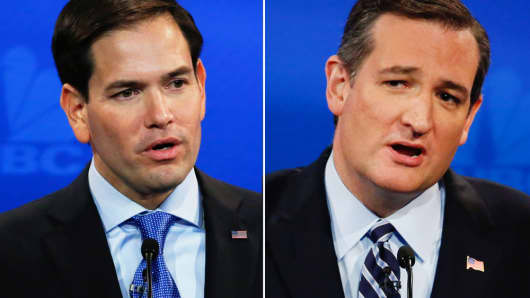Here's another reason why Cruz and Rubio won't get the Latino vote.
Nearly two-thirds of all Hispanics in the U.S. are Mexican, according to a Pew Research Center analysis of Census data, while Cubans make up 3 percent of the Hispanic vote. This also reinforces why Richardson polled significantly higher with Latinos in 2008 than both Cruz and Rubio are polling now.
So what can GOP leaders do if they want to bring more Latinos into the party?
They should look west towards New Mexico where a Republican governor, Susana Martinez, now leads the state that is rich in Latin culture. Martinez hasn't been vetted like Cruz or Rubio — and she doesn't have their national profile — but she does bring executive experience that both Cruz and Rubio lack. She is also the first Latina governor in the U.S. – and that's something no Hispanic or Latino voter will dispute, including this Mexican-American writer.
It couldn't hurt the GOP to give her a little more visibility.







